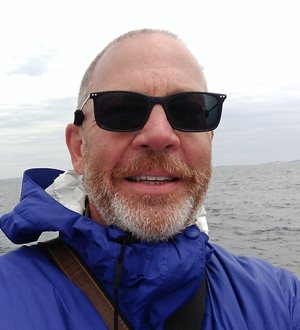
Prof Marean is from the USA and received his PhD at the University of California in 1990. He was the foundation professor in the School of Human Evolution and Social Change at the Arizona State University and the associate director of the Institute of Human Origins.
He has research interests in the field of origins of modern humans, the prehistory of Africa, paleoclimates and palaeoenvironments, and the study of animal bones from archaeological sites. He is particularly interested in human occupation of coastal and grassland ecosystems. He has conducted research in Kenya, Tanzania and Somalia, and since 1991 has been conducting field research in coastal South Africa. He is the principal investigator for the South African Coast Palaeoclimate, Palaeoenvironment, Palaeoecology, and Palaeoanthropology (SACP4) project based near Mossel Bay.
Prof Marean’s interest for Coastal Palaeoscience started at a young age and he shares that, “Ever since I was two years old my family migrated from the mountains of Pennsylvania to the coast of Maine for a two week family vacation. I fell in love with the sea. But also I think that the oceans and their resources played a special role in the origins of modern humans, and I have presented some scientific hypotheses for this, and my research is meant to test these.”
Now at Nelson Mandela University, Prof Marean highlights that, “Our vision is that the coast presents a complex system that has been crucial to humans and their lifeways since long ago. But this system requires an enormous number of disciplines to understand, so we bring to it a transdisciplinary approach. Thus it requires a name to encompass this approach that is not set within one discipline; (so) we call it Coastal Palaeoscience.”
The African Centre for Coastal Palaeoscience at Nelson Mandela University is primarily a research unit with teaching and learning on postgraduate levels.